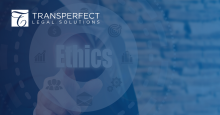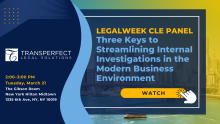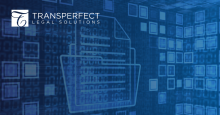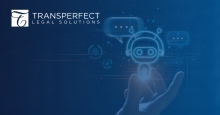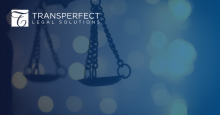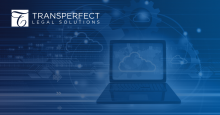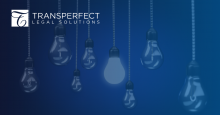The modern business environment presents the perfect storm of misappropriation of trade secrets and confidential business information. As IT systems and data platforms proliferate, it is increasingly difficult to control where your sensitive data is stored and ensure it is protected. At the same…
Resources.
Join TransPerfect Legal Solutions' Antitrust Practice Group as we detail best practices and cutting-edge strategies to streamline forensic collections, data processing and filtering, and managed review and production in merger review proceedings. Our expert panelists will address: mobile device…
Every law school graduate understands the importance of competence in the practice of law. It is not only essential to client service but a mandatory requirement under professional rules of responsibility. Recently, several courts have sanctioned attorneys (and their clients) for failing to meet…
On January 5, 2023, the Federal Trade Commission (FTC) proposed a new rule that would prohibit new and require the rescission of all non-compete agreements as an “unfair method of competition.” The p
As data volumes and data sources continue to expand, it is increasingly difficult to manage a streamlined internal investigation for legal, compliance, and risk professionals. This difficulty is compounded by ever-increasing data security protocols, which often restrict sending sensitive data…
Discovery is the largest time and cost component of civil litigation. As the volume of documents in scope increases exponentially, teams need to manage them as “quickly, inexpensively, and efficiently as possible” (to quote the Federal Court rules).
Courts and bar associations across the country have recognized that in order to satisfy the ethical duty of competence, supervision, and confidentiality, attorneys involved in litigation must have a sufficient understanding of legal technology and, in particular, the recurring issues that arise in…
ChatGPT is the “revolutionary” AI tool everyone is talking about. From composing songs and writing college-level essays to finding and fixing bugs in code, the chatbot is both wowing and worrying the tech industry.
Our panel of experts discuss how advanced technology—including natural language processing and neural machine translation—can be integrated into an e-discovery workflow from processing through review and production across the entire EDRM. This webinar aims to help lawyers mitigate the risk of…
Multi-District Litigation (MDL) is a complex judicial tool to create efficiency within the court system and consolidate matters from various jurisdictions into one.
Just over one month into the new year, TLS Directors Tom Balmer and Stefan Nigam have joined forces to discuss the trends shaping global eDiscovery in 2023. Whether it is streamlining document disclosure through AI or collecting data from blockchain, this year will be full of challenges for legal…
Your Playbook for eDiscovery or Litigation Response Plan is a living document that is continuously modified to define an organization’s approach to the preservation, collection, processing, reviewing, and final disposition of data at the conclusion of a matter.


